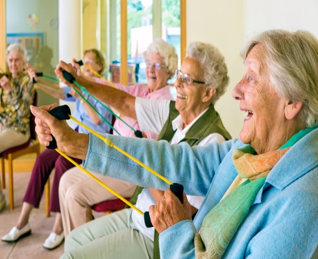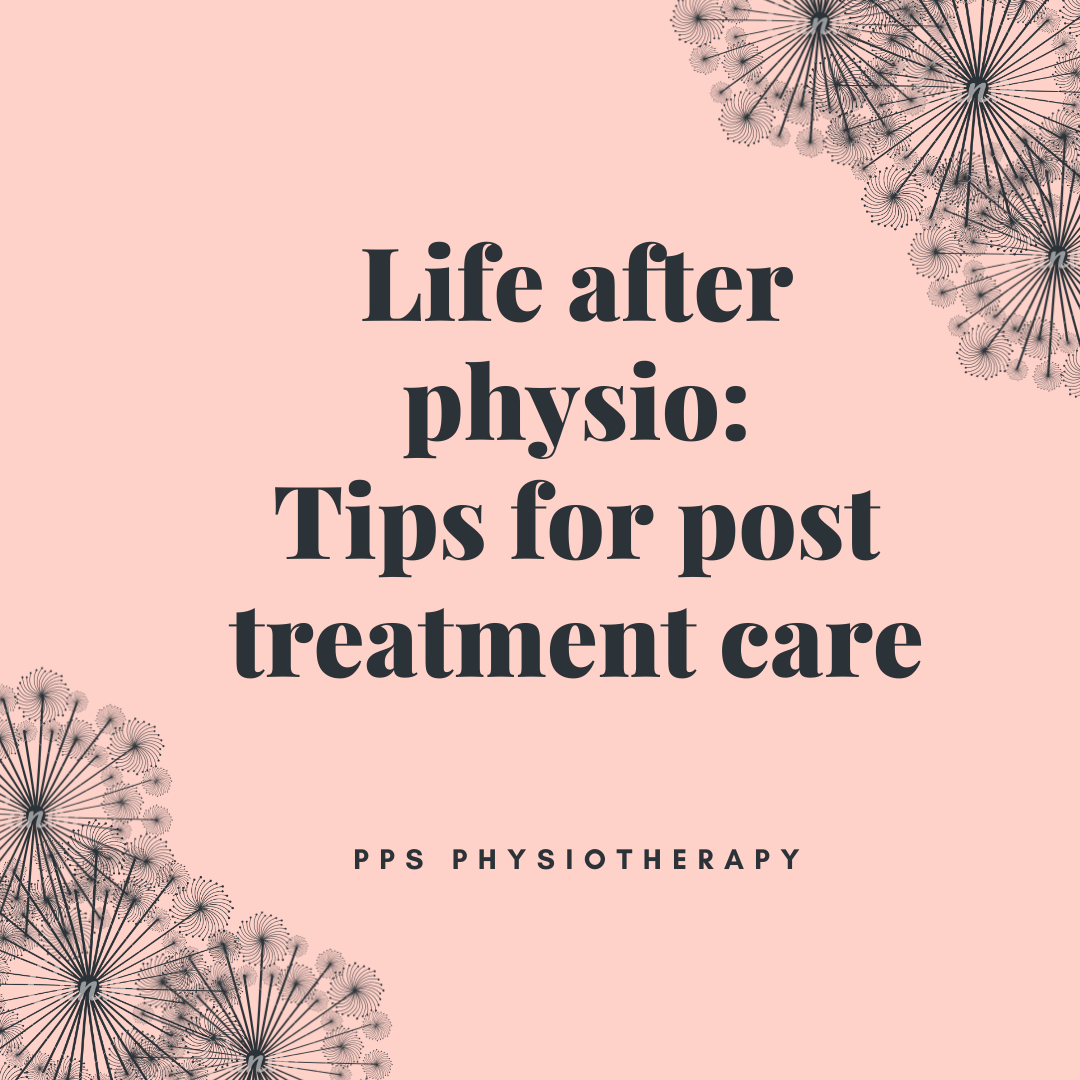QUESTION: Do you only brush your teeth once every six months after seeing your dentist? Hopefully, for most people the answer is NO! So why do so many of us not look after our bodies after we see a physio?
Physiotherapists are great at restoring and maintaining movement and functionality in patients. They help people of all ages to remain independent, mobile, pain free and assist in the recovery of serious conditions and other body dysfunctions.
In order to maintain movement and function post discharge from physio it is vital that you follow a few simple instructions.
Keep Moving –> Motion is Lotion
This may seem like silly advice, but moving and staying active are an important part of staying injury and pain free.
There are a number of easy ways to keep moving that don’t require lots of exercise or over exertion. Below are a few examples of how to keep moving and avoid flare ups:
- Take a walk during your lunch break
- Set reminders to stand up every 30 minutes when working in a job that requires long periods of being seated. Take this time to go and fill up your water bottle.
- Take the stairs instead of using an escalator
- Walk to work
- Walk around during TV commercials
Not only does staying in motion maintain movement and function, it can also reduce your risk of cardio vascular disease, type 2 diabetes, certain types of cancer and blood pressure.
Adhere to your home exercise program
Home exercise programs are a fundamental component to physiotherapy rehab and improving patient outcomes. Considering the average physiotherapy session ranges from 45-60 minutes, there may not be enough time to make the drastic changes you need.
Research has shown that patients who adhere to their home exercise programs are significantly better in achieving their goals and maintaining strength and physical function. By continuing to strengthen muscles the risk of recurrent injury or flare-ups decreases.
Some tips to help in completing your home exercise program
- Set aside 30 minutes a day to sit and complete your exercises
- Write down your exercises and how many times they should be completed, along with reminders on technique. You may also find it helpful to video your physiotherapist completing the exercises to ensure you are doing them correctly.
As you improve and therapy treatment progresses, your home exercise program should too. If you are still completing the same exercises months after therapy, your program might need to be updated to reflect your progress. Don’t hesitate to ask your physio if your program is still appropriate and what you should continue to do, stop, or add to your program.
Sleep and recovery
People often fail to recognise the importance of sleep as part of the recovery process. Whether you are moderately active, or a professional athlete, sleep plays a crucial role in recovery and getting your body into top form.
As we sleep, muscles and tissues rejuvenate and repair. This is possible due to increased blood flow in our bodies. This increased blood flow brings along oxygen and nutrients that help recover and repair muscles and regenerate cells.
Hormones also play a role in the recovery process. When the body enters its deep sleep stage known as non-REM sleep, the pituitary gland releases growth hormones that stimulate muscle repair and growth. When the body doesn’t get enough rest, the secretion of this growth hormone declines, and it can become harder for your body to recover from injuries. The hormone prolactin, which helps regulate inflammation, is also released while sleeping. If you don’t get enough sleep, you’re more likely to experience inflammation in the body, which can make injury recovery more difficult, while also putting you at risk of further injury.
The amount of sleep needed per night varies from person to person, however we recommend somewhere between 7 and 9 hours each night. If you really want to get better, you need to give your body time to heal.



Just like you would brush your teeth everyday to maintain good mouth hygiene, it is important to look after your body the same way.
For more information about post treatment care feel free to speak to our friendly team at Kellyville@ppsphysio.com.au or Carlingford@ppsphysio.com.au.

